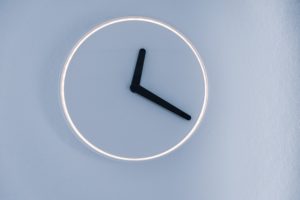Is a Sleepy Staff Cutting Into Your Profit Margin?
Executive staffing recruiters say sleepy employees often equal sleepy profits
We all know that a well-rested employee is a happier, healthier, more productive employee. However, executive staffing recruiters are noticing a trend: today’s fast-paced, always-available-via-technology lifestyle is leaving many employees sleep deprived and dragging through the workday.
Even minor sleep deprivation impairs memory and cognitive function, increases stress and risk of injury, and lowers productivity. In fact, job consultants estimate that lack of sleep costs businesses as much as $63 billion per year.
Why is sleep so important?
Sleep cleanses toxic proteins from the brain. Sleeping less than the recommended minimum of seven hours per night means that the brain isn’t able to adequately cleanse the brain. Recurring sleep deprivation is also linked to a variety of serious health conditions including Type 2 diabetes, obesity, heart attacks, and strokes.
If that’s not enough, start watching out for droopy eyelids: lack of sleep increases cortisol production, which accelerates the aging process.
Work naps are catching on
Companies like Google, Hubspot, and Zappos have recognized sleep’s positive impact on productivity, absenteeism, and overall job satisfaction and are now encouraging staffers to take nap breaks.
Science backs this up: naps taken between 1:00 and 3:00 PM align with the body’s natural circadian rhythm, and just twenty minutes of shut-eye can restore focus and productivity. A 2008 study found that naps can be more powerful than caffeine, and a NASA study found that 26 minutes of naptime resulted in a 34% increase in productivity and 54% increase in alertness.
Create your own nap room
If your staff is sleepy, our executive staffing recruiters recommend that you take a cue from companies like Google and create a nap room in your office. It doesn’t need to be elaborate – a few cots or comfortable couches will get the job done. Or consider using hammocks like Hubspot does.
Because napping in the workplace is such a cultural shift from previous decades, it may take some encouragement to get your staff on board. Our placement consultants have seen the best results in companies that ask their CEO’s or management teams to lead by example. If key players openly use nap rooms as a way to bolster their energy, employees will soon follow suit.
It’s important to ensure that nap rooms aren’t abused, however. Job consultants recommend that employees sleep for 30 minutes or less, as longer naps can leave them feeling groggy due to the body’s transition to deep sleep modes. A short nap will rejuvenate your staff and still leave them plenty of time to meet deadlines.

Struggling to find top
talent for your business?
Connect with the expertes at Recruiting Connection and discover the difference our full-service recruitment can make.
Contact Us Today
















